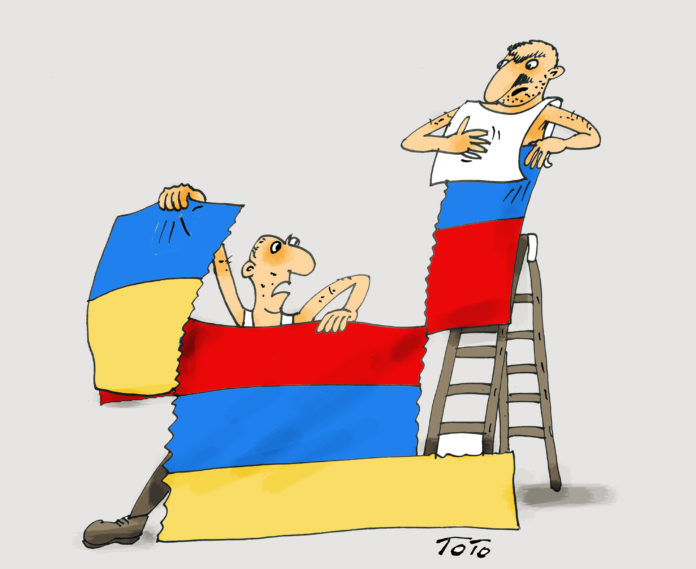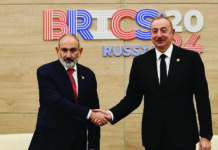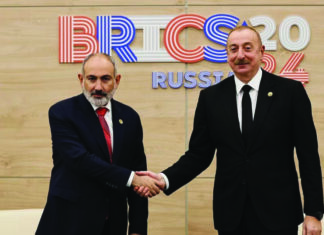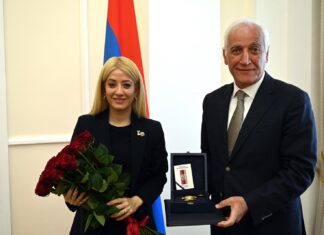While the majority of Armenia’s population is concerned over the immediate and short-term impact of Russia’s war in Ukraine, historians and analysts look further into the future for developments of historic consequences.
The war launched by Russia against Ukraine and the subsequent international sanctions against that nation have sent shivers through the part of the world economically intertwined with Russia.
In Armenia, that change because of the war has been immediate and harsh. Armenia’s gross domestic product (GDP) for next year was forecast to increase by 5.6 percent, but now the central bank has revised that figure to 1.6 percent, in view of the elimination of remittances from Armenians in Russia accounting for 49 percent of money transfers to Armenia, and disruption of the supply chain of food and commodities, which are mostly imported from Russia.
Moscow has set restrictions on grain exports even to Eurasian Economic Union members, of which Armenia is one. Twenty seven percent of Armenia’s exports are destined for Russia, and that area will be impacted severely also. However, even in the best-case scenario, the downfall of the Russian currency rate will devastate the market.
There is talk now by the authorities as to how long the current food supplies can last and what the alternatives for Armenia are to prevent deprivation.
On the other hand, a new phenomenon has developed in the country with the flood of Russians and Ukrainians émigrés escaping their homelands. They bring with them their talents and capital. However, the question is how long Armenia’s economic infrastructure can sustain this kind of sudden upheaval. Already, the real estate market is overheated.









